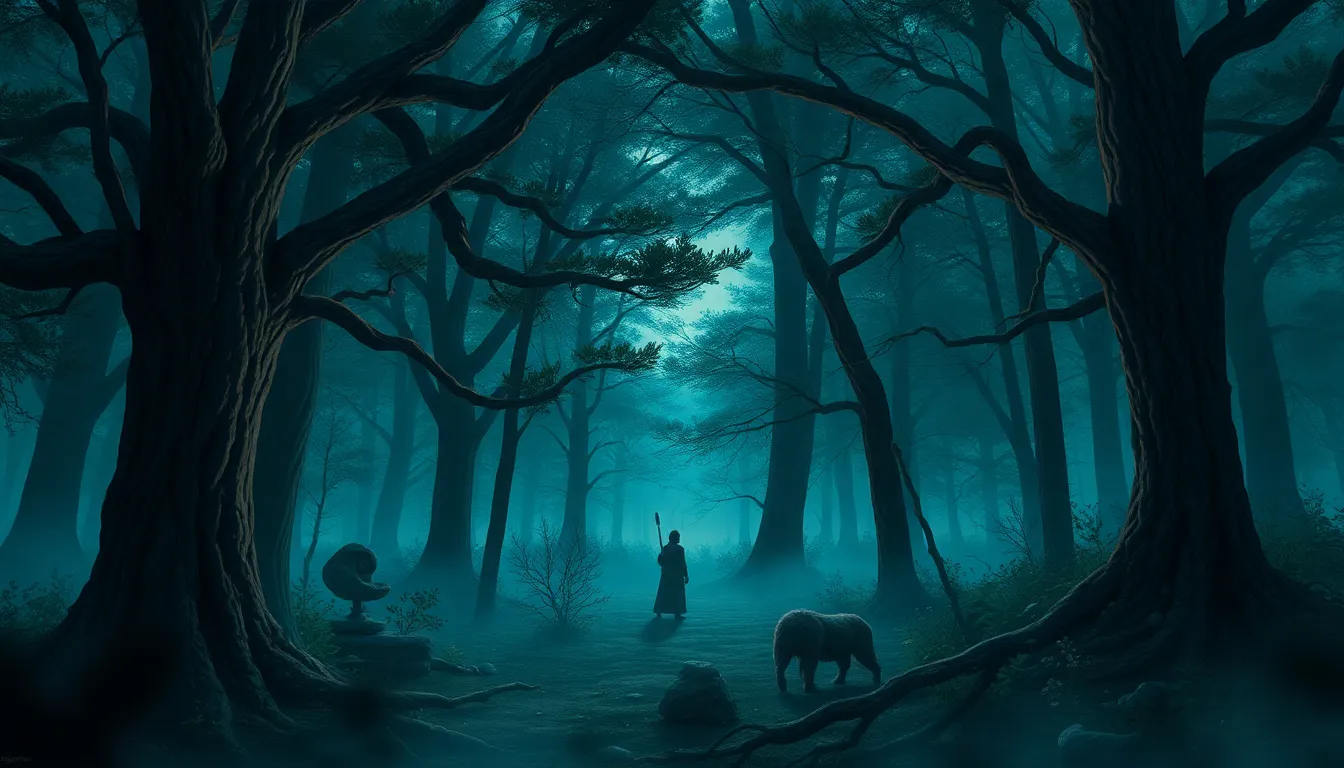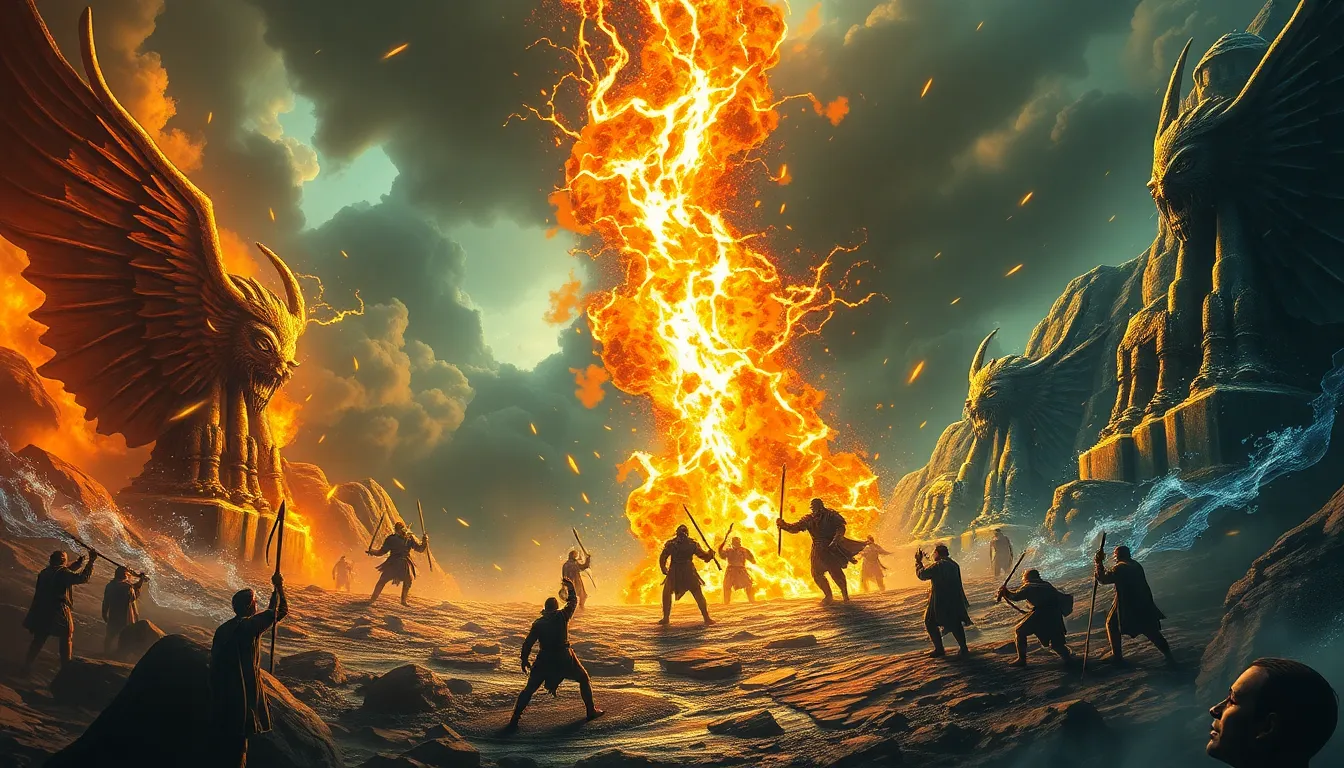The Hidden Powers of Mythical Weapons: What Lies Beneath the Surface!
Introduction to Mythical Weapons
Mythical weapons have captivated the human imagination for centuries, serving as symbols of power, justice, and the eternal struggle between good and evil. Defined as extraordinary weapons imbued with supernatural qualities, they hold significant cultural importance across various civilizations. From ancient folklore to modern literature, these legendary instruments not only serve their bearers in battles but also embody deeper meanings that resonate with audiences around the world.
The Origins of Mythical Weapons
The origins of mythical weapons often lie deep within the historical contexts of the cultures that created them. These weapons are frequently linked to legendary figures, gods, or ancient kings, showcasing the intertwining of myth and history.
- Excalibur: The legendary sword of King Arthur, believed to have been given to him by the Lady of the Lake.
- Mjölnir: The hammer of Thor, the Norse god of thunder, created by dwarven blacksmiths.
- Gáe Bolg: The spear of the hero Cú Chulainn, said to be forged by the sea god Manannán mac Lir.
These examples illustrate how mythical weapons are often tied to the identities and stories of their creators, reflecting the values and beliefs of their time.
Symbolism and Meaning Behind Mythical Weapons
Beyond their physical forms, mythical weapons carry profound symbolic meanings that resonate with themes of power, morality, and justice. They often represent:
- Power: Weapons like Excalibur symbolize rightful sovereignty, available only to the worthy.
- Justice: Mjölnir is not just a weapon; it is a tool for maintaining cosmic order and punishing wrongdoing.
- Morality: Many heroes wield their weapons not merely for conquest but to protect the innocent and uphold virtue.
These themes allow audiences to reflect on their own lives, offering insights into the nature of power and responsibility.
Famous Mythical Weapons and Their Stories
Throughout history, certain mythical weapons have stood out due to their unique characteristics and the legends surrounding them. Some iconic examples include:
- Excalibur: Associated with King Arthur, this sword symbolizes divine kingship and is often depicted as a weapon that only the true king can wield.
- Mjölnir: This hammer embodies the might of Thor, representing protection for the gods and humans alike against chaos and evil.
- Gáe Bolg: Known for its lethal precision, this spear represents the tragic heroism of Cú Chulainn, reflecting themes of fate and sacrifice.
The stories surrounding these weapons reveal the values and struggles of the heroes who wield them, creating rich narratives that continue to inspire.
The Hidden Powers: Beyond Physical Strength
Mythical weapons often possess magical and supernatural abilities that extend beyond mere physical prowess. These powers can manifest in various ways:
- Excalibur: Grants its wielder unmatched strength and invincibility in battle.
- Mjölnir: Can summon lightning and control the weather, symbolizing Thor’s dominion over nature.
- Gáe Bolg: Said to always strike its target and deliver a fatal wound, it represents the inevitability of destiny.
These hidden powers not only enhance the weapon’s allure but also reflect the inner struggles of the heroes, symbolizing their personal battles against adversity.
The Role of Mythical Weapons in Hero’s Journey
In many myths, weapons play a crucial role in the hero’s journey, serving as tools for character development and transformation. The acquisition of a mythical weapon often marks a pivotal moment in a hero’s story, symbolizing:
- Their readiness to take on greater challenges.
- The transition from a humble beginning to a position of power.
- Their acceptance of the responsibilities that come with great power.
For instance, when King Arthur pulls Excalibur from the stone, it signifies his rightful claim to the throne and his readiness to lead. Similarly, Thor’s mastery of Mjölnir represents his role as a protector of both gods and humans.
Cultural Impact of Mythical Weapons on Modern Media
The influence of mythical weapons extends into contemporary literature, films, and video games, where they are reimagined and adapted to resonate with modern audiences. Notable examples include:
- Excalibur: Featured in numerous adaptations, from T.H. White’s “The Once and Future King” to cinematic portrayals in films like “King Arthur.”
- Mjölnir: Central to Marvel’s Thor franchise, where it symbolizes worthiness and heroism.
- Gáe Bolg: Appearing in various adaptations, including the anime “Fate/stay night,” where it is depicted with its legendary powers.
These representations help keep the myths alive, allowing new generations to connect with their cultural heritage.
Psychological Interpretations of Mythical Weapons
Mythical weapons often serve as metaphors for personal challenges and growth. They reflect the internal struggles of their wielders, illustrating how:
- Power can corrupt, leading to moral dilemmas.
- The burden of responsibility can weigh heavily on heroes.
- Success often comes with sacrifice and loss.
These narratives resonate with audiences, providing insights into the human condition and our collective consciousness.
The Future of Mythical Weapons in Storytelling
As we look to the future, the narratives surrounding mythical weapons are likely to evolve. Predictions for their development include:
- New interpretations that reflect contemporary issues and values.
- The creation of original myths that incorporate modern technology and social dilemmas.
- Continued exploration of the psychological aspects of heroism in storytelling.
These evolving narratives will ensure that mythical weapons remain relevant and compelling symbols in our cultural landscape.
Conclusion: The Enduring Legacy of Mythical Weapons
The enduring legacy of mythical weapons lies in their ability to captivate our imagination and inspire reflection on profound themes such as power, morality, and personal growth. They serve as reminders of the hero’s journey that exists within us all, encouraging us to confront our own challenges and strive for greatness. As long as stories are told, the mythical weapons of our past will continue to influence and inspire new generations, teaching valuable lessons about the complexities of life and the nature of heroism.



